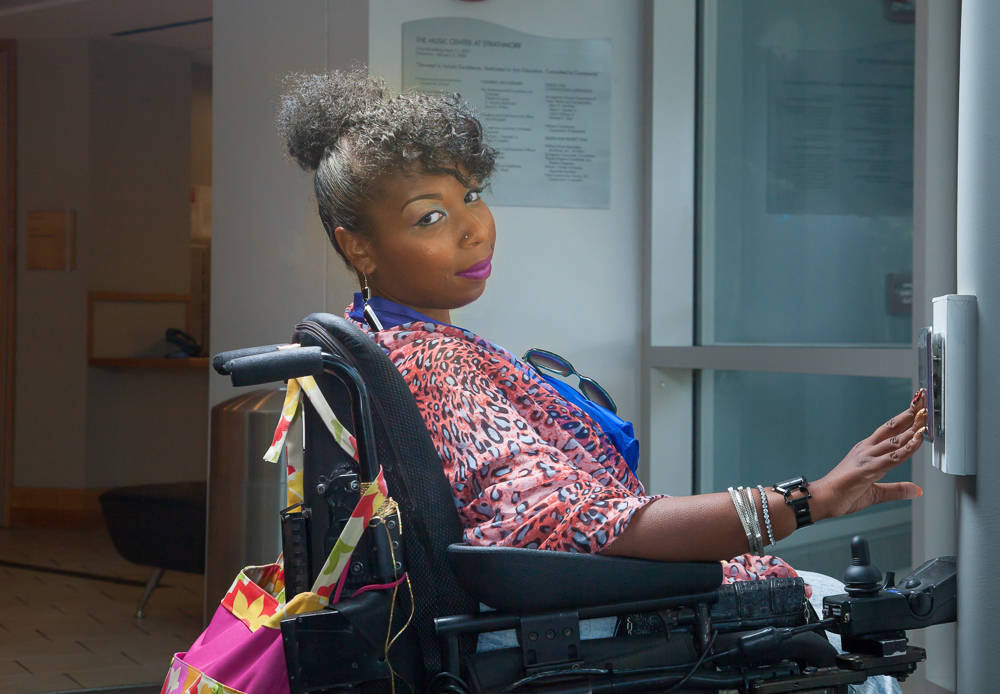Defendant hotelier in Acheson Hotels v. Laufer has opened a new bed and breakfast that – surprise – does not comply with the ADA.
On October 4, 2023, the U.S. Supreme Court will hear arguments in Acheson Hotels LLC v. Laufer, a case that will decide whether testers – disabled people who investigate compliance with the Americans with Disabilities Act (ADA) – can sue businesses for discrimination when their rights under that law are violated.
DREDF filed a brief in support of Deborah Laufer, the disabled person who discovered that the hotel run by Acheson Hotels was out of compliance with the ADA. You can read DREDF’s brief here.
The hotel and its supporters argue that businesses are willing to comply with ADA requirements and do so voluntarily. All a disabled person has to do if they encounter an inadvertent barrier is ask that it be removed.
“Politely.”
Acheson Hotels told the Supreme Court that “a simple phone call reminding a hotel owner of its obligations” is better and more effective than a lawsuit. “A polite phone call or email will frequently be more effective at persuading” a business to comply with the law, Acheson said. Its supporters the Retail Litigation Center and National Retail Federation similarly told the Court that businesses are “willing to make changes” to comply with the ADA and access issues can be resolved with a “quick” or “simple phone call.”
Rubbish.
People with disabilities should not have to “politely” request that businesses comply with a law that has been in effect for over three decades. Further, voluntary compliance is a myth.
If businesses truly “support” the ADA and have “robust accessibility programs” (as claimed by the Chamber of Commerce, in support of the hotel), then why is non-compliance with the ADA’s requirements still so commonplace? The reality is that many businesses do not value disabled customers. The barriers and discriminatory policies that persist at businesses send a clear message to people with disabilities: You are not welcome. You do not belong.
Being “polite” will not cure this deep-rooted bias and ableism.
Recent actions by the owner of Acheson Hotels LLC confirm the myth of voluntary compliance. Deborah Laufer filed her lawsuit because the online reservation system for the Coast Village Inn – then owned by Acheson Hotels LLC[1] – failed to provide required accessibility information. The owner of Acheson Hotels LLC, Julianna Acheson, has been fighting the case since 2020. Ms. Acheson does not dispute that the Coast Village Inn’s online reservation system violated the ADA but is instead arguing that Ms. Laufer does not have the right to challenge the ADA violation because she had no immediate plan to visit the Inn.
After three years of litigation, Ms. Acheson is certainly on notice and understands that the ADA requires hotels to include access information as part of their online reservation systems. Yet, nine months ago, Ms. Acheson became the owner and operator of another place of lodging – the 1802 House Bed & Breakfast Inn.
And guess what?
Ms. Acheson is again violating the ADA! The reservation system for the 1802 House Bed & Breakfast Inn contains no accessibility information whatsoever.
Is the disability community really supposed to believe that businesses want to comply with the ADA, and further, that they will voluntarily comply with the ADA upon request, when real-life experience tells us the opposite? If the expense and stress of a years’ long lawsuit is not enough to encourage business owners like Ms. Acheson to voluntarily comply with the law, how is a polite ask going to do the job?
Enforcement is necessary. Testing is essential.
[1] Acheson Hotels LLC has since sold the Coast Village Inn to another party. The new owners have added required accessibility information to the Inn’s website.




